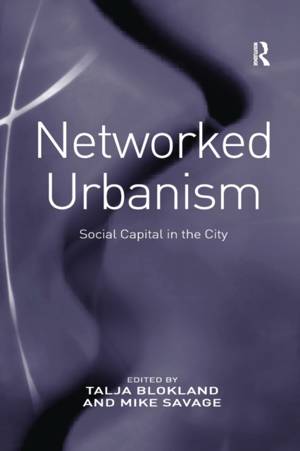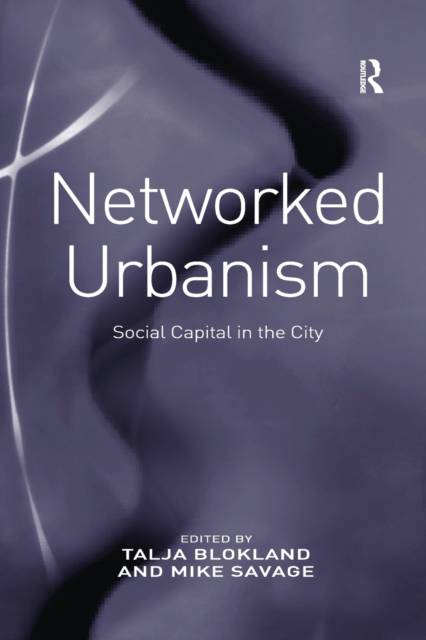
- Afhalen na 1 uur in een winkel met voorraad
- Gratis thuislevering in België vanaf € 30
- Ruim aanbod met 7 miljoen producten
- Afhalen na 1 uur in een winkel met voorraad
- Gratis thuislevering in België vanaf € 30
- Ruim aanbod met 7 miljoen producten
Zoeken
€ 83,95
+ 167 punten
Uitvoering
Omschrijving
Despite considerable interest in social capital amongst urban policy makers and academics alike, there is currently little direct focus on its urban dimensions. In this volume leading urban researchers from the Netherlands, the UK, the USA, Australia, Italy and France explore the nature of social networks and the significance of voluntary associations for contemporary urban life. Networked Urbanism recognizes that there is currently a sense of crisis in the cohesion of the city which has led to public attempts to encourage networking and the fostering of 'social capital'. However, the contributors collectively demonstrate how new kinds of 'networked urbanism' associated with ghettoization, suburbanization and segregation have broken from the kind of textured urban communities that existed in the past. This has generated new forms of exclusionary social capital, which fail to significantly resolve the problems of poor residents, whilst strengthening the position of the advantaged. Grounded in theoretical reflection and empirical research, Networked Urbanism will be of interest to scholars and students of sociology, geography and urban studies, as well as to policy makers.
Specificaties
Betrokkenen
- Auteur(s):
- Uitgeverij:
Inhoud
- Aantal bladzijden:
- 256
- Taal:
- Engels
Eigenschappen
- Productcode (EAN):
- 9780367603427
- Verschijningsdatum:
- 30/06/2020
- Uitvoering:
- Paperback
- Formaat:
- Trade paperback (VS)
- Afmetingen:
- 155 mm x 231 mm
- Gewicht:
- 417 g

Alleen bij Standaard Boekhandel
+ 167 punten op je klantenkaart van Standaard Boekhandel
Beoordelingen
We publiceren alleen reviews die voldoen aan de voorwaarden voor reviews. Bekijk onze voorwaarden voor reviews.











